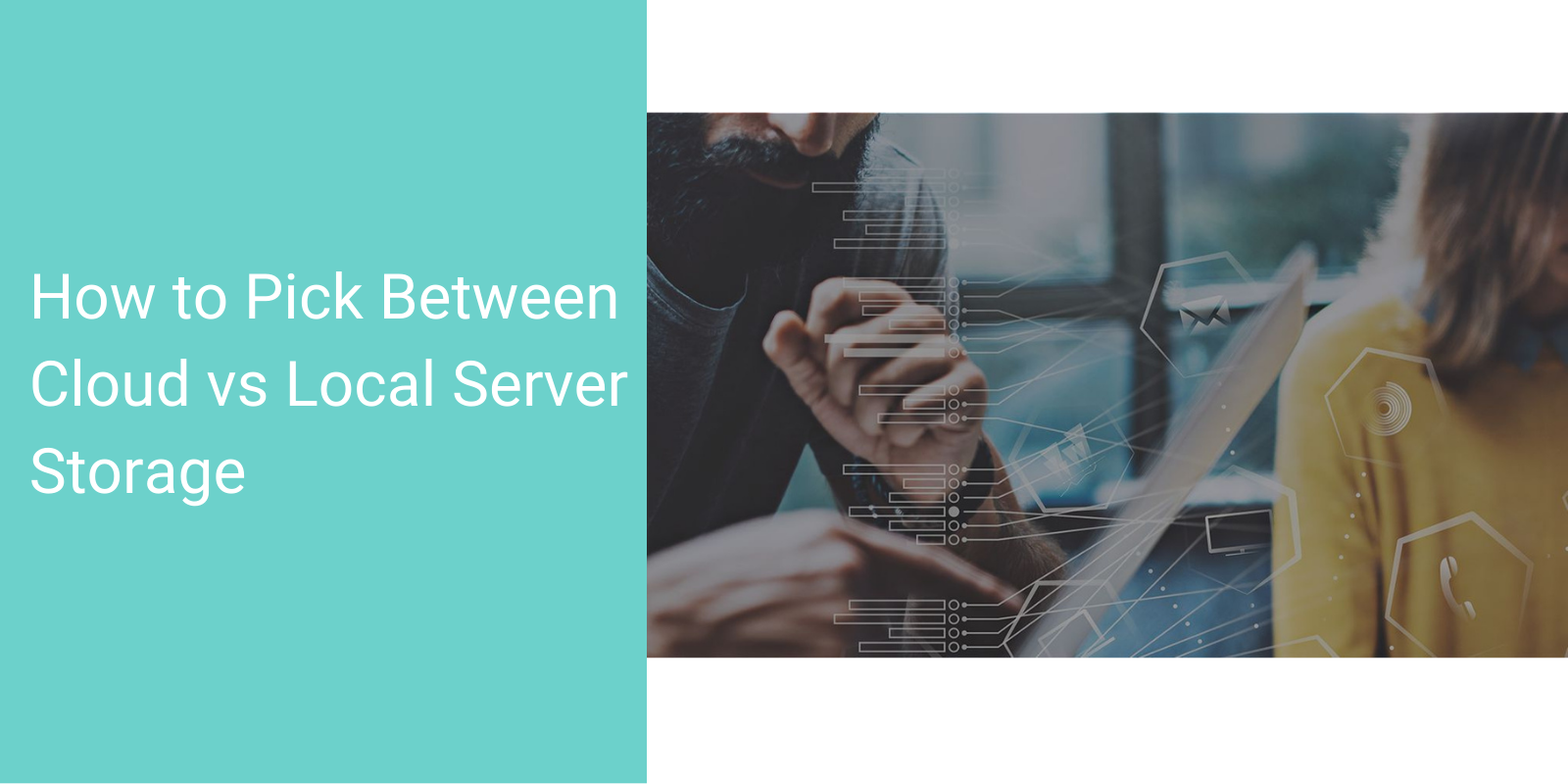By Dustin Loverich, Systems Technician
With customer needs varying greatly it can become difficult to make the choice of how to run & maintain efficient data centers through Cloud or Local servers. Choosing between the two becomes a vital decision for businesses of any size because it determines scalability, maintenance, and most important the cost.
This decision is like deciding between buying or leasing a car: each has specific advantages and risks, and what works for your needs today, might not suit your needs tomorrow. All these choice(s) come with different cost structures, user accessibility, security, maintenance & upgradability. This is why making a viable decision for your company’s needs for now and the future will greatly impact moving forward with saving data securely & efficiently.
By looking at the impacting factors, this blog post will help you decide what choice may best suit your organization to initialize and operate a cost-friendly solution. With the ever-changing state of technology, 3rd party vendor offerings are constantly adapting to new customer needs, with evolving products and services becoming more available to smaller businesses.
Local Server
First, I will cover the (In-house) local server option which gives you physical control over your backup but also requires a capital investment in essential hardware & infrastructure. When scaled correctly In- house servers offer many benefits that cloud-based options cannot, for example, data security, a third party does not have access to your data information in the case of a data breach. On the topic of compliance, regulatory laws often will not allow certain types of sensitive data to be stored “in the cloud”. Cloud encryption providers are starting to offer more options to customers in this area, but it is still a work in progress.
With the need for office space diminishing for many organizations, a con of in-house servers is they take up a lot of space. These servers that run your business need a secure location, power & cooling as well which can be difficult to maintain. Working as a technician & troubleshooting the many issues that arise over the year (in a data center) has given me a firsthand experience of everything that goes into managing an efficient data center.
Cloud Server
Next, we will look at the advantages of cloud services which offer the flexibility to meet companies changing demands without that large initial investment. Uptime is an important topic to address when making the decision of how you are going to store company data. With e-commerce growing exponentially companies that offer these types of sale services need customers to be able to make purchases without any deterring factors such as outages. Meaning if the internet goes down on your side or on the cloud provider’s side users will not have access to any of the data or systems set in place relying on that connection.
Like previously mentioned there are multiple factors that need to be identified & thought out before deciding on what storage method will work best for a specific customer’s needs. In-house server hardware can be suitable for companies that do not want to rely on the Internet, at the same time a business can reap the benefits of a cloud solution, such as Office 365, to allow users to connect from anywhere with a high degree of uptime.
Hybrid System
A growing trend in the industry is the deployment of a hybrid system that offers the benefits of both local & cloud servers. With the use of hybrid clouds becoming more popular it is almost inevitable that this is the direction the market is rapidly heading. Current growth projections have the hybrid cloud market at $100 billion by 2023, showing that many companies found/will find this to be the most viable option for business operations.
Modern hybrid cloud options now have the ability to determine which computing tasks to process locally & which to send to the cloud. Atom creek utilizes these technologies through partnerships by giving customers the best of both worlds through providing solutions when data is needed to be accessed both on & offline.
Conclusion
While understanding the pros and cons of cloud storage vs local storage is useful in determining your starting point, building a complete roadmap that carefully plans out how data is stored and accessed in each of these types of storage is the vital next step. Current workloads and the need(s) for secure storage of organizations can be assessed with the help of our managed service team to build a comprehensive strategy that matches your business’ unique needs.
While serving a wide variety of clients with multitudes of different needs, Atom Creek has been able to assist with making seamless transitions to various storage options. By implementing best practices and using the current client’s infrastructure setup as a working example of scalability options, we strive to offer the most up-to-date services and products to both new and existing customers.


